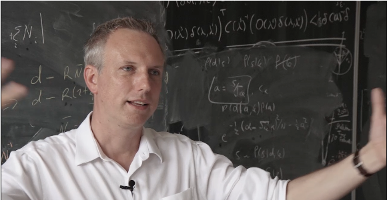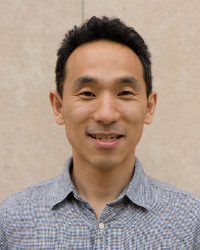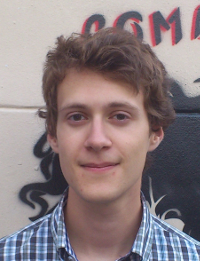|
|
|
ILP Newsletter #002 | December 2014
|
|
|
Calls for applications
Lagrange Thesis Fellowships
Applications for the fourth class of Lagrange thesis fellowships are now open. The new thesis fellows are expected to start in the Fall semester of 2015. The list of thesis project proposals written by members of the ILP is now available. Applications should be submitted by January 15, 2015 [more]
|
|
Lagrange Awards
The directorate and scientific council of the ILP invite expressions of interest for the Lagrange Awards. The award is intended to bring established creative leaders in the research themes of the ILP to the institute for extended periods of time, up to 6 months.
Expressions of interest should be submitted at contact[at]ilp.upmc.fr by January 15, 2015 [more]
|
|
|
News / Activities
Newcomers
This fall we have the pleasure to welcome five new Lagrange Fellows among ILP's teams! A warm welcome to Oscar de Felice, Eleonora Di Valentino, Matej Pavin, Eirik Eik Svanes and Caterina Umiltà.
|
|

Benjamin Wandelt
|
"What excites me in being a cosmologist"
Benjamin Wandelt, Director of the ILP, explains to us why it is exciting to be a cosmologist. First short video of a long series [more]
|
|
Universal density profile for cosmic voids
Cosmic voids are fascinating for several reasons. For example, they were the first places in the Universe to be dominated by dark energy. They make up the majority of the volume of the Universe today and constitute an exceptional source of cosmological information. In contrast to the dense regions where non-linear gravitational collapse has erased information about the primordial Universe, voids, in their more orderly outflow, hold memory of their initial states and hence about the physics of the beginning. Nico Hamaus, Paul Sutter and Benjamin Wandelt have carried out recent research works showing that a "simple" equation could describe large-scale bubbles. [more]
|
|

|
Lagrange Awardee: Shinji Mukohyama
(Yukawa Institute for Theoretical Physics, Kyoto University)
The Lagrange Institute is honoured to welcome the Professor Shinji Mukohyama from the Yukawa Institute for Theoretical Physics, Kyoto University. Prof. Mukohyama will spend 3 months in Paris, from January 2015, to collaborate with ILP's teams. Here is a brief statement of his planned activities during his stay:
"Einstein's theory of relativity has been successful in explaining and predicting many gravitational phenomena. Experimentally, however, we do not know how gravity behaves at distances shorter than ~ 0.01mm. Gravity at very long distances, e.g. billions of light-years, may also be as weird as at short distances.
In order to tackle the mysteries in modern cosmology such as dark energy, dark
matter, inflation and big-bang singularity, I have been and will continue exploring various attempts to go beyond Einstein's theory of
general relativity. I strongly hope to develop new projects within the ILP.
The subjects that I am currently interested in include, but are not restricted to, inflationary cosmological perturbations in either perturbative or non-perturbative approaches, primordial magnetic fields, cosmological constant problem, string cosmology, brane world cosmology, black hole thermodynamics, application of holographic principle, gravity at Lifshitz point, astrophysical constraints on quantum gravity effects, solar system tests of gravitational theories, and so on. I am quite open to any possibilities of collaborations within the ILP on those and other subjects."
|
|
Focus on ILP's Fellows
Paolo Francavilla, Postdoctoral Fellow at LPNHE
Member of the ATLAS collaboration since 2005 at CERN, I had the opportunity to play a relevant role on the ATLAS data taking during the LHC Run1 (acting as TileCal Run Coordinator in the second half of 2011) and on the measurement of jet production and properties. This period, enriched by the study the Monte Carlo generators used to simulate high energy particle collisions with the MCnet group, resulted in a Ph.D. thesis on the measurement of the inclusive jet cross section in ATLAS (awarded with the 2013 ATLAS thesis award).
Part of the group searching for the Higgs boson in the ATLAS experiment since beginning of 2012 with the IFAE-Barcelona group, I had different responsibilities in the search of the Higgs boson decaying in b-quarks.
This specific decay mode is of particular interest to complete the portrait of the new particle discovered in summer 2012, and it is part of my research plans founded by the ILP with the ATLAS group in the LPNHE.
|

|

Frédéric Dreyer
Contact:
dreyer[at]lpthe.jussieu.fr
|
Frédéric Dreyer, Ph.D. Thesis Fellow at LPTHE
After completing a joint Master's program in Physics at ETH Zürich and École Polytechnique in 2013, I joined the Lagrange Institute and started my PhD at the Laboratoire de Physique Théorique et Hautes Énergies (LPTHE), under the supervision of Matteo Cacciari and in collaboration with Gavin Salam at the European Organization for Nuclear Research (CERN).
I am presently involved in the development of algorithms and numerical tools for the Large Hadron Collider (LHC) at CERN. The LHC plays an important role in furthering our understanding of Particle Physics, and a major breakthrough was announced in 2012 with the discovery of the Higgs boson, elucidating one the missing pieces of the Standard Model of Particle Physics.
My thesis is in the field of Quantum Chromodynamics, a sub-field of Particle Physics that describes strong interactions and is playing an increasingly important role as hadron colliders continue to push the boundaries of precision. In particular, the focus of my project is on the physics of "jets", cones of particles resulting from the fragmentation of a quark or gluon, as these emerge from a variety of processes and represent a cornerstone in modern analyses.
|
|
|
|
|
|